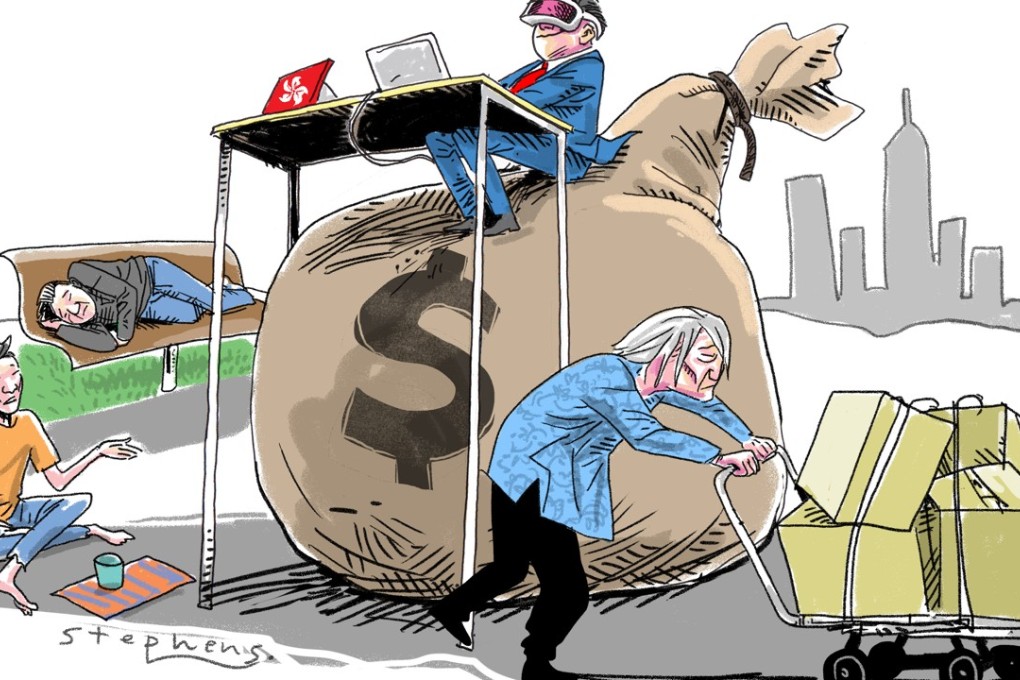Advertisement
Attention Hong Kong bureaucrats: venture outside your bubble to see how the rest of the city lives – then act
Philip Yeung says the Hong Kong government takes more than it gives, as it sits on massive surpluses and yet, from education to the elderly, fails to deliver policies that actually help those in need
Reading Time:3 minutes
Why you can trust SCMP

Once again, Hong Kong Chief Executive Carrie Lam Cheng Yuet-ngor is canvassing people for ideas to energise her upcoming policy address. Some greet this appeal as just another exercise in futility. Instead, they want her to ponder this question: do we have a government that takes more than it gives?
The answer, if you judge by the overflowing coffers and the sorry sight of poor old scavengers in our streets, is an accusing “yes”. Hongkongers toil their entire lives and pay their taxes, only to have their government begrudge them a starvation handout in their twilight years. The red tape that greying former taxpayers have to comply with gives the government a deserved black eye.
Governments are supposed to do things that we can’t do individually. They collect our taxes for larger purposes, not to sit on them. But, in Hong Kong, we are awash with idle dollars watched over by idle bureaucrats. While squatting on a bulging surplus, they nickel-and-dime our elderly citizens to death, sometimes literally.
Advertisement
In fairness, the government can take credit for giving us an efficient public transit system, recent MTR scandals notwithstanding. But in other major departments of life, it has been stuck in neutral or worse since the handover. The once equal-opportunity elite school system has been, to all intents and purposes, privatised; free public education is free and public only if it is inferior.
Advertisement
Advertisement
Select Voice
Choose your listening speed
Get through articles 2x faster
1.25x
250 WPM
Slow
Average
Fast
1.25x